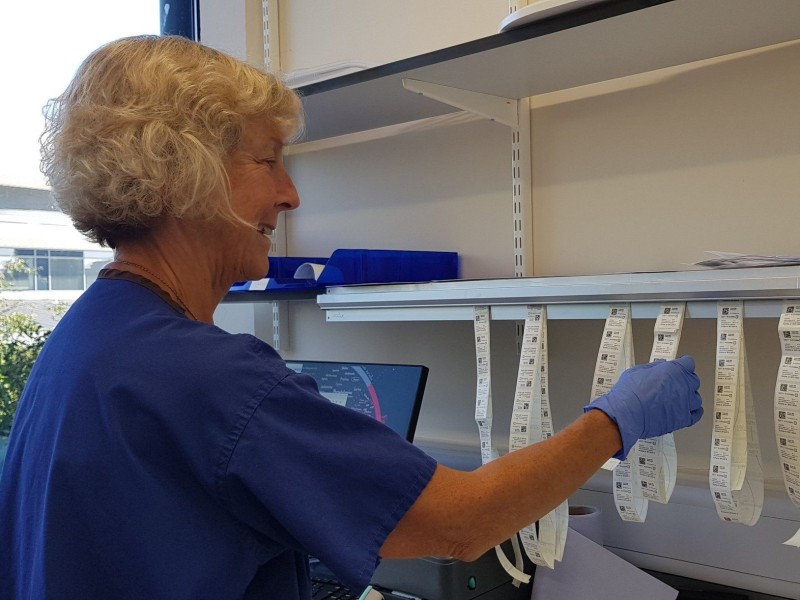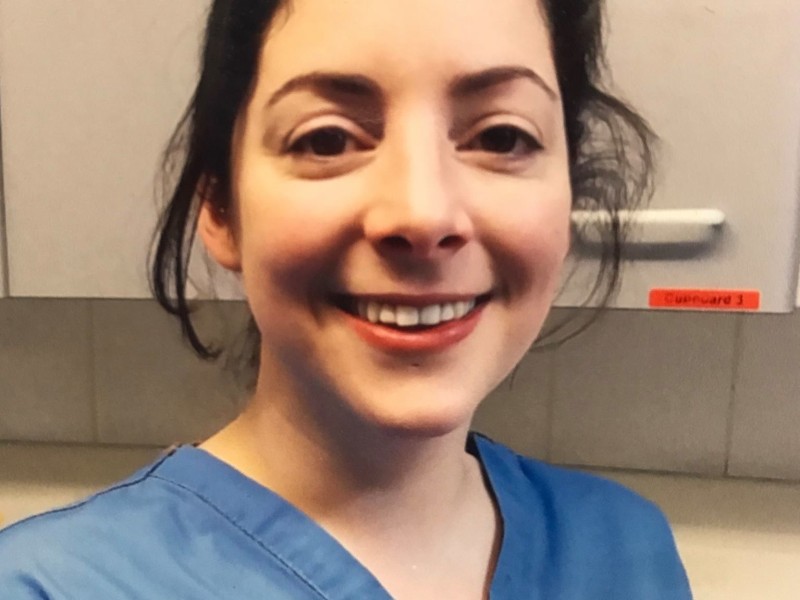Donating Milk
Click here
If you would like to order milk for use in your neonatal unit or hospital, please contact us by calling 01582 314 130, or by email – info@heartsmilkbank.org.
Donor milk can be ordered during our office hours, Monday to Friday 9am – 5pm.
If you need donor milk in an emergency outside of office hours, please call the out-of-hours number.

The Hearts Milk Bank is committed to ensuring that donor human milk is used safely and appropriately within the context of optimal lactation support. To help support teams on neonatal units, we are developing a series of modules that can be accessed individually, giving staff the skills and information needed to maintain safe handling and answer all questions parents might have.
We can also provide resources for parents that can help support your work:
If you access DHM already from the Hearts Milk Bank, hospital staff can access online training modules and receive CPD points towards their own professional development. The following modules are available, but please get in touch if you would like to be kept posted when new ones launch:
If your unit does not use DHM from Hearts but would like to access training, please contact the team on info@humanmilkfoundation.org.
If you would like to arrange in person training or a seminar on the latest research on human milk banks, please email info@heartsmilkbank.org.
If you are interested in starting to use DHM from Hearts, read about our service provision here or contact the team directly on info@heartsmilkbank.org.

We’ve been busy recruiting donors and pasteurising milk and have built up large stocks. Milk is now leaving our doors to over 50 NHS hospitals for use on neonatal units and to families in the community. We are delighted, and so grateful to all who have supported us to get to this point.
One of the first hospitals to contact us for donor milk was Luton and Dunstable NICU. We wanted to know how the Hearts Milk Bank supports staff and patients on this busy neonatal unit. Lauren Wong, Senior Sister, spoke to us about her experience of working with HMB.
I work in the NICU (Neonatal Intensive Care Unit) at Luton and Dunstable Hospital. We are a busy Level 3 unit, which means that we are able to care for babies who are very sick, or extremely premature (from 23 weeks gestation upwards). My role is as a Senior Sister and Infant Feeding lead nurse for the NICU.
Our primary use is for babies born at less than 32 weeks gestation, either to supplement mother’s own milk production (for example if mother is very unwell or having difficulties / a delay building her supply), or very occasionally in situations where we cannot give mother’s milk (for example due to chemotherapy). We also sometimes use donor breast milk for older babies who are very sick (for example those undergoing cooling therapy) or those with digestive issues.
We see breast milk as being like a medicine for our babies. It contains important factors for brain development, antibodies to fight disease and infection, and helps protects against allergies. However, the most important issue for our premature and sick population is that breast milk reduces the risk of a gut condition called necrotising enterocolitis (NEC) which can be very serious for babies.
There is strong evidence that increased use of breast milk saves the NHS money in the long term, by reducing the incidence of hospital admissions in babies (gastroenteritis, chest infections etc) as well as lowering the chances of many other conditions affecting older children and adults. We see demand for donor breast milk increasing, and being more widely used as the importance of breast milk is better understood.
I first heard about the Hearts Milk Bank through a friend who had seen an article online about a new milk bank for the region. We are very excited to be involved with the HMB. It is wonderful for us to have a regional milk bank where our NICU mums can easily donate their expressed milk without having to travel (the amazing SERV motorbike team will collect their milk). Mums are always glad to know that some of this milk may come back to us and be given to new babies coming in (some of their own babies may have also received donor milk for a while).
The staff at HMB are incredibly knowledgeable about milk banking and all things breast milk-related, and are always happy to answer our many questions. Gillian has visited the unit to give us some teaching about the processes involved in providing donor breast milk. This was a fascinating talk, and an excellent opportunity for doctors and nurses to ask any questions they had around milk banking.
We are now able to simply give the HMB contact details to our mums with excess milk, and they will guide them through the donation process. The HMB team also sensitively deals with bereaved parents who wish to discuss donating expressed breast milk. It may offer some small comfort for these parents to know that they have helped another family in a similar situation.
It is reassuring for us to have a local and reliable source of donor breast milk, rather than having to obtain milk wherever it is available. Also, as there is no courier charge for the Hearts Milk Bank, we are able to order small amounts as needed, rather than trying to predict long term use and order in larger volumes. They can provide us with larger or smaller bottles to suit our requirements (this helps us to avoid wastage), and they also provide a simple form for each batch to help us record information about who has received the milk.
Here at Luton, we are currently working towards accreditation from the Baby Friendly Initiative. Working with the HMB helps support us to do this through improved education, awareness, and support. We’re also really excited about the research looking into the epigenetics of breast cancer risk, and we look forward to hearing more about this and all the other plans for research that the team has.
The Human Milk Foundation is proud that the Hearts Milk Bank can support families facing breastfeeding challenges by providing skilled support and access to screened donor milk. Since September 2017, the HMB has supported hundreds of families facing feeding challenges. Each self refers or is referred with consent to contact their healthcare professional, usually a GP, hospital doctor, midwife or IBCLC.
As the HMF has grown, we wanted to ensure that this novel service was underpinned by a process that ensured fairness and safety to this precious resource. To achieve this aim, a Prioritisation Panel was set up in 2019 which has established a set of priorities and guidance on provision. You can read more who sits on the Prioritisation Panel and its ongoing work here.
Donor milk is prioritised according to four parameters: infant vulnerability (hospital DHM provision is always prioritised), maternal breastfeeding and psychological health, and milk bank supply/logistics. Sometimes these overlap, but they give the team a broad context to provide realistic expectations to families of what is possible.
If you are a healthcare provider working in the community and would like to inquire about using donor milk for either a sick baby or a mother who cannot breastfeed for medical reasons, please email us on info@heartsmilkbank.org.
The safety of donor milk is a critical concern to every milk bank, and we have adopted the highest standards at the Hearts Milk Bank from the outset. Where innovation is needed to ensure safety throughout the process, we are working together with partner organisations to create a true centre of excellence.
Please read more about the safety processes that underpin our work here. We use a milk tracking system called Li-Lac, designed by industry leaders Savant. Savant designs a range of systems for healthcare settings, including the NHS Blood and Transplant Service.
For information on the NICE Guideline for the operation of a human milk bank (Guideline #93), please click here.
To read about the team of Expert Advisors who support the Hearts Milk Bank team, click here.
To read how supplies of donor human milk are prioritised, click here.
The HMF is working to create a Professional Development Framework for milk bank personnel. This Framework will ensure that all milk bank staff, from the junior technical service specialist to the most national service director, are appropriately trained, informed, and able to appreciate and work in any aspect of milk banking. Ongoing training and professional development is part of the commitment to each team member.
Crucially, the Framework will build towards the registration of milk banking as a profession in the UK, acknowledging the specialised knowledge and skills of milk bank staff, and create a career path to inspire the next generation.